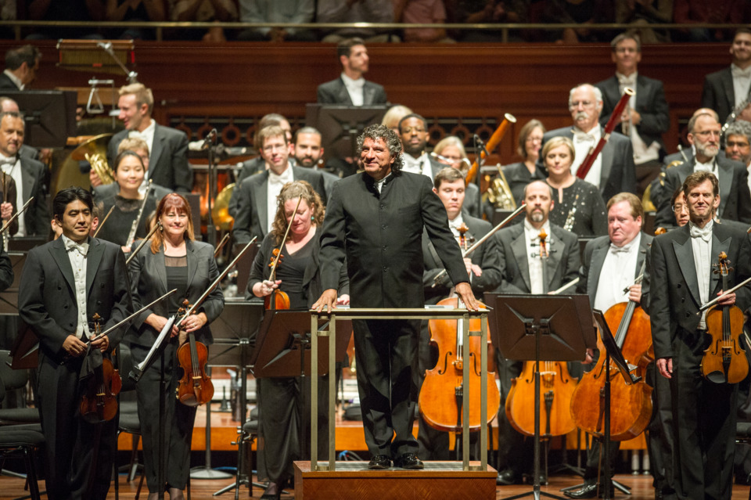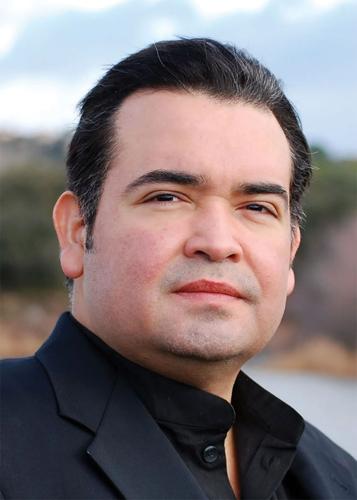
Music director Giancarlo Guerrero with the Nashville Symphony
If your experience with classical choral works is limited to holiday offerings such as Handel’s Messiah, you’ll want to check out Antonio Estévez’s Cantata Criolla, part of a marvelous program from the Nashville Symphony this weekend titled “Copland, Piazzolla and Estévez.”
“When we think of choral music, we usually think first of Europe, and we normally think of church music — whether it’s a mass or a requiem,” says Nashville Symphony music director Giancarlo Guerrero. “But Cantata Criolla is rather unusual because it’s a choral piece from Latin America, and more specifically Venezuela. And it was created for the secular concert hall.”
Based on a Venezuelan mythic poem, the 1954 work follows Florentino, a poor llanero — a plainsman, comparable to an American cowboy — who is forced to battle the devil for his soul. But as demonstrated by the work’s subtitle — Florentino, Who Sang With the Devil — it’s really an improvised war of words, with each singer picking up the last line offered by his opponent to create a new verse.
“It’s basically the story of Faust — you know, the man who sold his soul to the devil in exchange for riches,” Guerrero says. “But in this case, the story is being told in the Venezuelan tundra. I actually lived in Venezuela for four years, and the Cantata Criolla is a work that I have championed many times. It’s the great magnum opus of that country, and one of the greatest choral pieces of the 20th century in Latin America.”
Guerrero explains that the piece calls for a full orchestra and choir, with a tenor soloist playing the role of Florentino and a baritone playing the devil. The piece features a prominent harp and piano part, and also showcases the maracas, an instrument that is hugely important in Venezuelan culture.

Aquiles Machado, tenor
“We’re actually bringing in a Venezuelan maracas player, who happens to be the bass clarinetist in the Atlanta Symphony,” Guerrero says. “I’ve known Alcides Rodriguez for many years, and he’s amazing. And of course both singers — tenor Aquiles Machado and baritone Juan Tomás Martinez — are also Venezuelan. They’ve done the piece many times, so for the audience, it’s going to be a real treat. And more importantly, we’re putting it on record.”
That’s an important distinction for Guerrero. Though he’ll be leaving the Nashville Symphony after this season, he has led the ensemble in becoming one of the nation’s most prolific recording orchestras — earning 14 Grammys and 27 nominations along the way. This season alone, Nashville Symphony is live-recording four works for future commercial release, including John Corigliano’s Triathlon, Chick Corea’s Concerto for Trombone, and the upcoming One Sweet Morning, the poignant song cycle Corigliano wrote to mark the 10th anniversary of the Sept. 11 attacks.
“For me, it’s about building a legacy. In many ways, these recordings represent a snapshot — not only of the orchestra, but also of Nashville as a whole. The program and the repertoire that we are championing today — especially some of these living American composers — will at some point become the next Mozart, the next Beethoven or Brahms.
“And remember that a lot of these works were Nashville Symphony commissions, so we own them as a city. The orchestra, the audience, our supporters and volunteers — everyone did their part to make an investment in our art form for the future. And because we’re recording these works, they will become easily available for other conductors and orchestras in other cities. And they will hopefully pick them up and champion them as well. So in a way, this music becomes like a gift for all the orchestras around the world. What an honor.”






